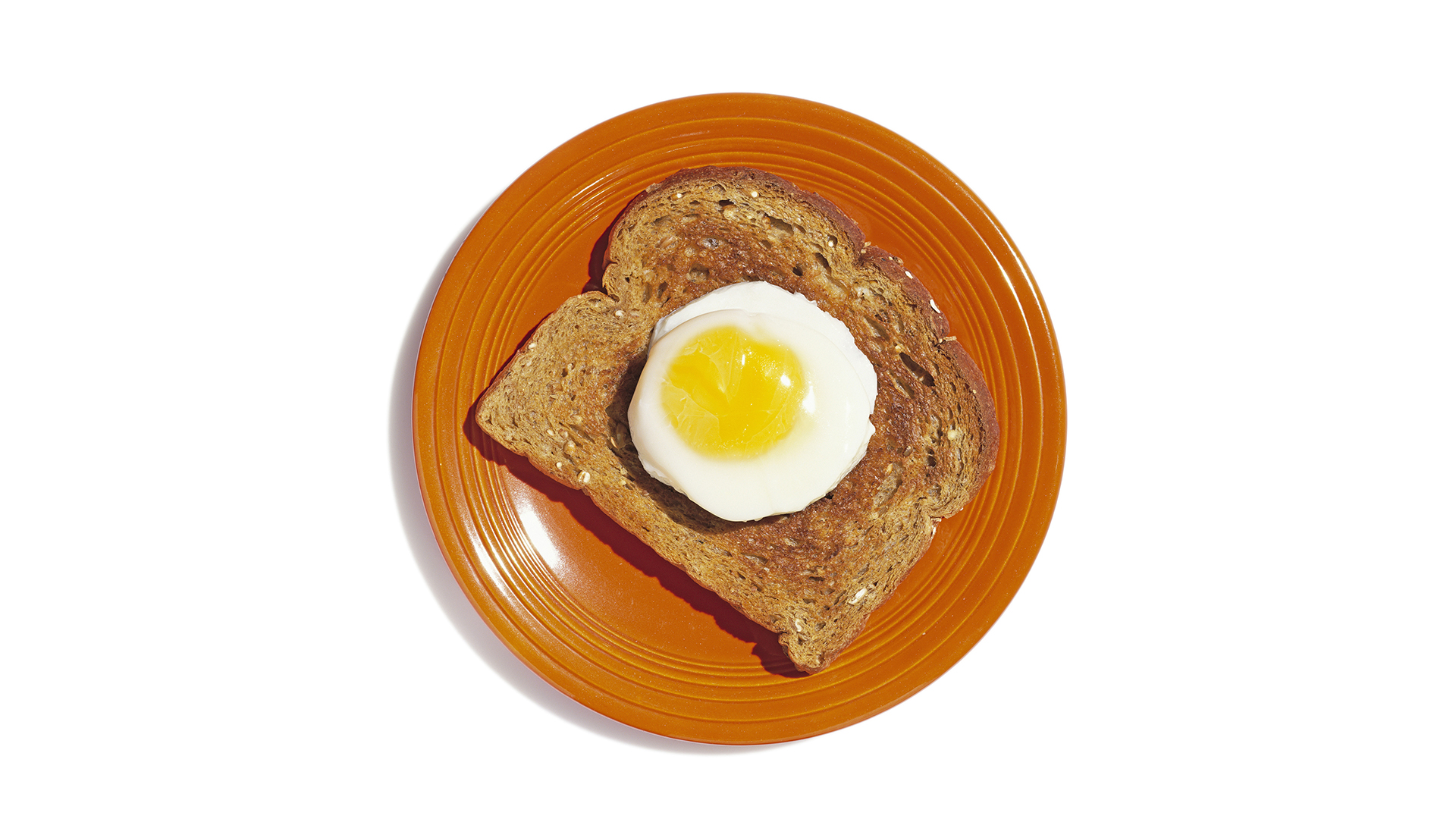Why do you usually eat the same thing for breakfast?
When eating breakfast, most people seek utility — not pleasure.

Get the world’s most fascinating discoveries delivered straight to your inbox.
You are now subscribed
Your newsletter sign-up was successful
Want to add more newsletters?

Delivered Daily
Daily Newsletter
Sign up for the latest discoveries, groundbreaking research and fascinating breakthroughs that impact you and the wider world direct to your inbox.

Once a week
Life's Little Mysteries
Feed your curiosity with an exclusive mystery every week, solved with science and delivered direct to your inbox before it's seen anywhere else.

Once a week
How It Works
Sign up to our free science & technology newsletter for your weekly fix of fascinating articles, quick quizzes, amazing images, and more

Delivered daily
Space.com Newsletter
Breaking space news, the latest updates on rocket launches, skywatching events and more!

Once a month
Watch This Space
Sign up to our monthly entertainment newsletter to keep up with all our coverage of the latest sci-fi and space movies, tv shows, games and books.

Once a week
Night Sky This Week
Discover this week's must-see night sky events, moon phases, and stunning astrophotos. Sign up for our skywatching newsletter and explore the universe with us!
Join the club
Get full access to premium articles, exclusive features and a growing list of member rewards.
For many people, breakfast — often called the most important meal of the day — is also the day's least-exciting meal. Breakfast choices frequently reflect utilitarian needs; foods at breakfast are typically simple, quick and easy to prepare and eat, and valued for the calorie boost that revives the body and brain after a night's rest. And when people find a breakfast option they like, they generally stick with it, day after day, scientists have found.
When researchers recently evaluated the daily eating habits in thousands of U.S. and French study subjects, they saw that people repeatedly ate the same thing for breakfast — and were happy to do so. By comparison, when those people sat down to lunch or dinner, they expected greater variety and wanted a more pleasurable experience from their meals.
Why were so many of those people satisfied with eating the same breakfast every morning? The scientists suggested that psychological, biological and cultural drivers shape our expectations for meals, and those factors — and our enthusiasm for eating — differ depending on the time of day.
Related: Can a person survive eating only beef?
Throughout the day and into the night, our bodies follow circadian rhythms. Nearly all forms of life adhere to these 24-hour cycles, which govern changes that are physical, mental and behavioral. For example, a typical sleep schedule in humans follows light-related circadian rhythms. Tens of thousands of neurons in the brain regulate this so-called biological clock so that we feel sleepy at nighttime when it's dark and are more alert when the sun is up during the daytime, according to the National Institutes of General Medical Sciences.
Circadian rhythms also affect our eating schedules, and other researchers have previously investigated links between circadian rhythms and variations in the size and variety of meals that people eat throughout the day, according to a study published in the January 2022 issue of the journal Appetite.
For this investigation, the scientists questioned if psychological factors linked to circadian rhythms could also influence what people ate for breakfast, lunch and dinner. Those questions also interested the researchers because of their own breakfast habits, said lead study author Romain Cadario, an assistant professor in the Rotterdam School of Management at Erasmus University in the Netherlands.
Get the world’s most fascinating discoveries delivered straight to your inbox.
"I'm a French person — I usually seek a lot of variety in the things that I eat; this is something that's valued by French gastronomic society," Cadario said. "At the same time, I ate the same breakfast every single day. So, my co-author and I started to talk about that pattern of behavior." (Cadario's typical breakfast is a cup of coffee and one piece of toast, he told Live Science. Study co-author Carey Morewedge, a professor in the Questrom School of Business at Boston University, has eaten the same breakfast for the past two years: coffee, toast with almond butter, "and an avocado, spinach, protein powder and banana smoothie," he wrote in Time magazine in December 2021.)
Practicality vs. pleasure
Cadario and Morewedge examined prior studies and identified two goals that govern meal choices: utilitarian, in which practicality is paramount, and hedonic, in which pleasure is more important. The researchers then analyzed data in which a group of 1,275 American volunteers and a group of 2,624 French volunteers self-reported what they ate at different meals, to find patterns in meal experiences.
They discovered that in both groups, 68% of the participants ate the same breakfast at least twice in one week, and French people did so even more often than Americans did, (73% and 52%, respectively). By comparison, just 9% of the people repeated a dinner they had already eaten, and this repetition was higher for the American participants (16%) than for the French participants (6%).
Cultural factors in the U.S. and France may explain why people would seek less variety in their breakfasts, as "capitalist labor practices allow many people less time to select, prepare, and consume their breakfasts than their lunches or dinners," the researchers wrote. Biology — circadian rhythms — likely also play a part; people tend to be at their most alert at the start of the day, and would therefore be satisfied with a meal choice that they don't have to think about too much. But later in the day, when their energy is flagging, they might crave a more stimulating meal for lunch or dinner, the scientists suggested.
The researchers then proposed that psychological factors could also map to circadian rhythms to further nudge people toward certain meal choices. Early in the day, when energy levels are higher, people are more prone to pursue utilitarian goals and make practical choices. This makes it more likely that they'd be guided by practicality over pleasure when eating breakfast and would be more inclined to find one breakfast they liked and then eat the same thing over and over again, according to the study.
But as the day progresses, and a person's energy waxes and wanes, the importance of utilitarian goals declines. Pleasure-seeking becomes more important, and a person would then be more prone to seek variety in tastes and textures.
However, even though culture, biology and psychology make it seem natural to seek utilitarian goals for breakfast, "we can pursue pleasure and seek variety if we set our mind to it," Morewedge wrote in Time magazine. Indeed, analysis of study participants' food diaries showed that on weekends, when people expected breakfast to be more pleasurable, they usually introduced more variety into the breakfast menu. By consciously introducing variation into weekday breakfasts — even if it means a little extra work — breakfast can become a lot more enjoyable, which can help set a more positive tone for the rest of the day, Cadario said.
"A little bit of pleasure in the morning helps you start off the day on the right foot," he added.
Originally published on Live Science.

Mindy Weisberger is a science journalist and author of "Rise of the Zombie Bugs: The Surprising Science of Parasitic Mind-Control" (Hopkins Press). She formerly edited for Scholastic and was a channel editor and senior writer for Live Science. She has reported on general science, covering climate change, paleontology, biology and space. Mindy studied film at Columbia University; prior to LS, she produced, wrote and directed media for the American Museum of Natural History in NYC. Her videos about dinosaurs, astrophysics, biodiversity and evolution appear in museums and science centers worldwide, earning awards such as the CINE Golden Eagle and the Communicator Award of Excellence. Her writing has also appeared in Scientific American, The Washington Post, How It Works Magazine and CNN.
 Live Science Plus
Live Science Plus











